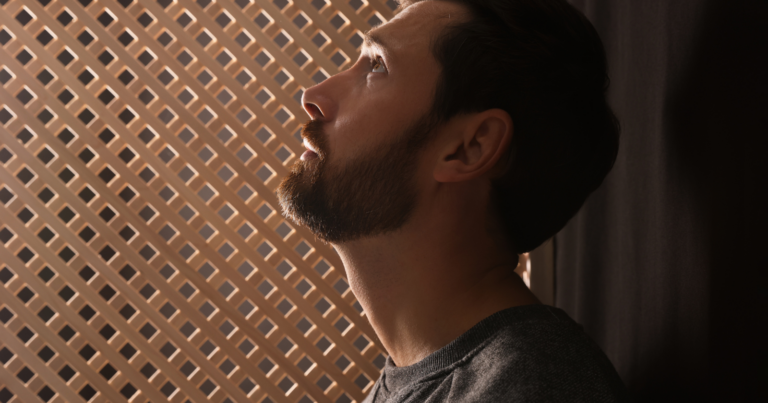There’s a clear difference between living by Christian beliefs and following modern societal norms.
It boils down to perspective. Living by Christian values often means adhering to principles rooted in scripture and tradition, sometimes in contrast to current social trends.
Negotiating these differences isn’t easy, especially when you’re trying to blend faith with the realities of modern society. But it’s important to understand where these clashes occur, to navigate life with grace and understanding.
In this article, I’ll highlight 9 ways Christian beliefs may clash with modern societal norms. Don’t worry – this is not a judgment call. It’s merely a discussion, aimed at fostering understanding in a world where harmony sometimes seems elusive. So, let’s dive in.
1) Views on marriage
The institution of marriage holds a central place in Christian doctrine. It’s seen as a holy covenant, a sacred bond established by God, and strongly rooted in tradition.
In contrast, modern societal norms have evolved. The definition of marriage has expanded to include same-sex unions, a concept that clashes with traditional Christian values.
The divide is evident. On one side, you have Christians who stand firm in their belief that marriage should be strictly between a man and a woman, as outlined in biblical teachings. On the other side, there’s a growing acceptance in society of diverse forms of love and commitment.
This is not about instigating a debate or passing judgment on either side. It’s about acknowledging this disparity – one of the many ways Christian beliefs sometimes clash with modern societal norms.
But remember, everyone is entitled to their beliefs and values, and it’s in recognizing these differences that we foster understanding and tolerance.
2) Sunday observance
Growing up in a Christian household, Sundays were sacred. It wasn’t just a day, but a tradition – church in the morning, a big family lunch, and then some quiet time in the afternoon. It was our day of worship and rest, as stated in the Ten Commandments.
Fast-forward to today’s society, where Sundays are often just like any other day. Businesses are open, events are scheduled, and work continues for many. The idea of a day of rest seems outdated in our 24/7 world.
I remember when I first moved to the city for work and was scheduled for a Sunday shift. It was a stark contrast to my upbringing and a real eye-opener to how societal norms had shifted. Recognizing this clash helped me navigate my personal beliefs with the demands of modern life.
Again, it’s not about right or wrong but understanding these differences and finding ways to respect and reconcile them.
3) Concept of forgiveness
In Christian teachings, forgiveness is a central tenet. The Bible often cites Jesus Christ’s teachings on turning the other cheek and forgiving not seven, but seventy times seven times. It’s a spiritual mandate that encourages grace and compassion.
In contrast, today’s society often promotes a ‘cancel culture’, where individuals are publicly shamed or ostracized for their mistakes or controversial opinions. This can lead to individuals being ‘cancelled’ or boycotted by others, often permanently.
The numbers are staggering. A 2020 Pew Research study found that 40% of U.S. adults had experienced some form of online harassment, often a result of cancel culture.
While it’s crucial to hold people accountable for their actions, the lack of forgiveness in modern society stands in stark contrast to Christian beliefs about grace and redemption. Navigating this difference can be quite challenging for many Christians in today’s world.
4) Views on suffering
Christianity often portrays suffering as an integral part of human life. It’s seen as a means to grow in faith, with the belief that God can use our pain and struggles for a greater good. We’re taught that trials are opportunities to persevere and cultivate spiritual strength.
However, in today’s society, suffering is often seen as something to be immediately fixed or avoided. We’re surrounded by quick fixes and instant gratification. Pain is perceived as an inconvenience, an unwelcome interruption to our pursuit of happiness.
This contrast can lead to confusion and inner conflict for many Christians trying to reconcile their beliefs with societal expectations. It’s not an easy challenge, but understanding the differences can pave the way for insightful conversations and personal growth.
5) Attitude towards material wealth
Christian teachings often warn against the dangers of excessive wealth and materialism. There’s a strong emphasis on spiritual riches over earthly possessions. The Bible even goes as far as to say, “It is easier for a camel to go through the eye of a needle, than for a rich man to enter into the kingdom of God.”
Meanwhile, modern society often celebrates material success. Wealth is equated with success, power, and status. The ‘American Dream’ itself is built on the idea of material prosperity and upward mobility.
This contrast between spiritual and material values can lead to a significant clash for Christians navigating life in a consumer-driven society. It’s another area where understanding these differences can help in striking a balance between faith and societal expectations.
6) Love and acceptance
The core message of Christianity is love – love for God, love for others, and love for oneself. It’s the message that resonates through scriptures and sermons, and the one I hold dear to my heart.
However, our society, while advocating for love and acceptance, often falls short. We see divisions based on race, religion, political beliefs, and other differences. Instead of a culture of love and acceptance, we often encounter prejudice and hate.
Seeing these societal norms clash with my faith’s teachings of unconditional love is heartbreaking. It’s a stark reminder of the work we need to do as individuals and as a society to foster more love and acceptance, regardless of our differences.
Remember, understanding these clashes isn’t just about acknowledging them but is the first step towards bridging these gaps.
7) The concept of humility
Christianity places a high value on humility. The Bible says, “God opposes the proud but gives grace to the humble.” This teaching has always resonated with me and has been a guiding principle in my life.
Contrast this with today’s societal norms where self-promotion and branding are often celebrated. Social media platforms encourage us to showcase our achievements and lifestyle, often leading to a race for likes, shares, and followers.
I’ve grappled with this contrast in my journey as a writer. While it’s crucial to share my work and build an audience, I strive to do so without losing sight of the value of humility ingrained in me through my faith. It’s a balancing act – one that many Christians may find challenging in our increasingly digital and self-promoting world.
8) Stewardship of the Earth
Christianity emphasizes the role of humans as stewards of the Earth. It teaches that God has entrusted us with the responsibility to care for the planet and its resources.
Contrarily, modern society often prioritizes economic growth over environmental conservation. Industrialization and consumerism have led to significant environmental issues like pollution, deforestation, and climate change.
This divergence between Christian beliefs and societal norms can lead to a moral dilemma for many Christians who are conscious about the environment. It’s yet another facet of life where understanding these clashes can encourage thoughtful dialogue and action towards a sustainable future.
9) The sanctity of life
At the heart of Christianity is the belief in the sanctity of life. Every life is seen as precious, created in the image of God, and deserving of respect and protection.
In contrast, today’s society grapples with complex ethical issues like abortion, euthanasia, and capital punishment. These debates often challenge the Christian belief in the sanctity of life, leading to deep-seated conflicts.
This clash might be one of the most profound and emotionally charged. It’s a reminder that navigating between Christian beliefs and modern societal norms is not always straightforward but calls for constant reflection, understanding, and empathy.
Reflection: The intersection of faith and society
The interplay between faith and society is a complex and evolving tapestry. At its core, it’s a journey of navigating deeply held beliefs within the framework of societal norms that continue to evolve.
As we’ve explored these 9 areas where Christian beliefs clash with modern societal norms, it’s essential to remember the words of Saint Augustine, a prominent Christian philosopher: “In essentials, unity; in non-essentials, liberty; in all things, charity.”
This guiding principle can serve as a compass when navigating these clashes. It reminds us to stand firm on core beliefs, exercise freedom in areas of discretion, and above all, approach everything with love and understanding.
Faith is personal and profound in its influence on individual lives. Society, on the other hand, is collective and dynamic in shaping global cultures. The intersection of these two can be challenging but equally enriching.
So, as you reflect on these clashes between Christian beliefs and societal norms, consider it not as a battlefield but as a meeting point – a place for dialogue, understanding, growth, and most importantly, love.







